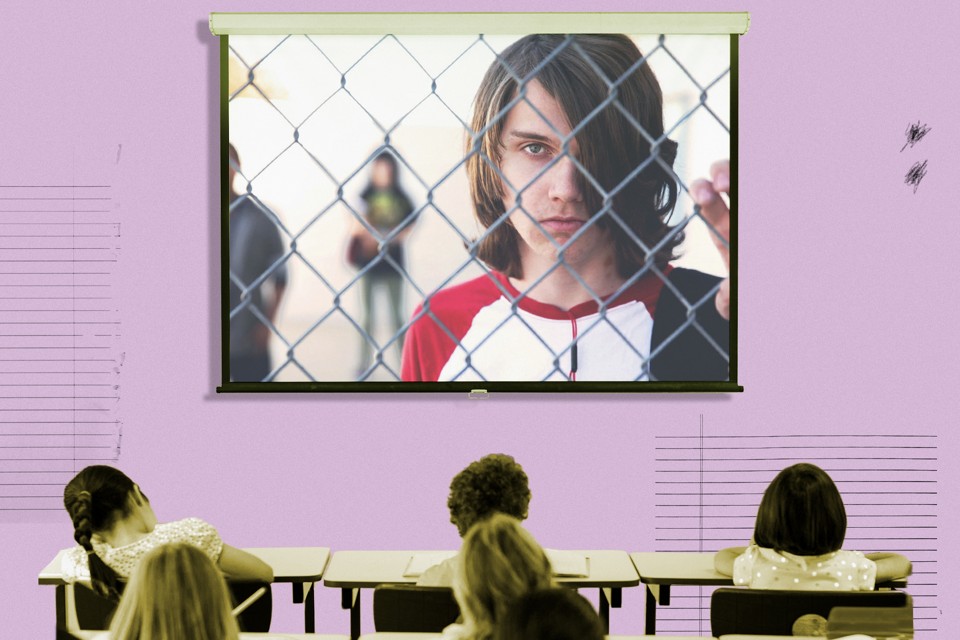Where the 'Bad Kids' Go to School
A 2016 documentary magnifies an often ignored part of the education world.

This is the first installment in our series examining the intersections of education and entertainment in 2016. Check back for more entries on late-night comedy, a play, animated movies, and television.
The directors behind 2002’s critically acclaimed Lost in La Mancha are the unlikely providers of one of 2016’s best films about education. To be fair, it’s not a vast category. But Keith Fulton and Lou Pepe’s examination of how poverty—and its various manifestations—can derail adolescence in The Bad Kids is a thought-provoking, gut-wrenching, and, at times, cautiously hopeful, look at a part of the U.S. education system many people would rather ignore.
About 125 miles east of Los Angeles in the vast desolation of the Mojave Desert sits Black Rock High School. A sort of last stop for students behind in credits and at risk of dropping out, the school is tasked with educating teens who have been sexually abused, who are addicted to drugs, and who, in many cases, have lost any sense of hope for their future.
“The world is actually a dark place,” Lee Bridges, a teen father who struggles to balance coursework with raising his son and supporting his girlfriend, says toward the beginning of the documentary. “When it comes to school, I just don't believe I have what it takes.” It would be easy enough for the film to indulge that idea. Over the course of an hour and a half, viewers meet students who have the odds more than stacked against them. Kids drop out, use drugs, drive their teachers to tears. But there are moments of quiet triumph and real progress, too. A student earning enough credits to finally graduate. A usually disengaged kid gushing over Voltaire.
The filmmakers don’t offer sweeping reforms or policy suggestions. But they do strive to point out that helping poor and at-risk students succeed is about more than just academics. A kid can’t focus on philosophy if he’s hungry or exhausted because he slept on a recliner outside someone’s shed. As Pepe said during a phone interview, “I think the experience that I had that I hope is in the film is that this is an educational environment, an educational culture that doesn’t say, ‘oh, those problems have nothing to do with algebra, so just stay quiet about them.’” The word he chose when someone in a pitch meeting asked him for one word to describe the film? Empathy.'The Bad Kids' Showcases Schools for At-Risk Students - The Atlantic:
